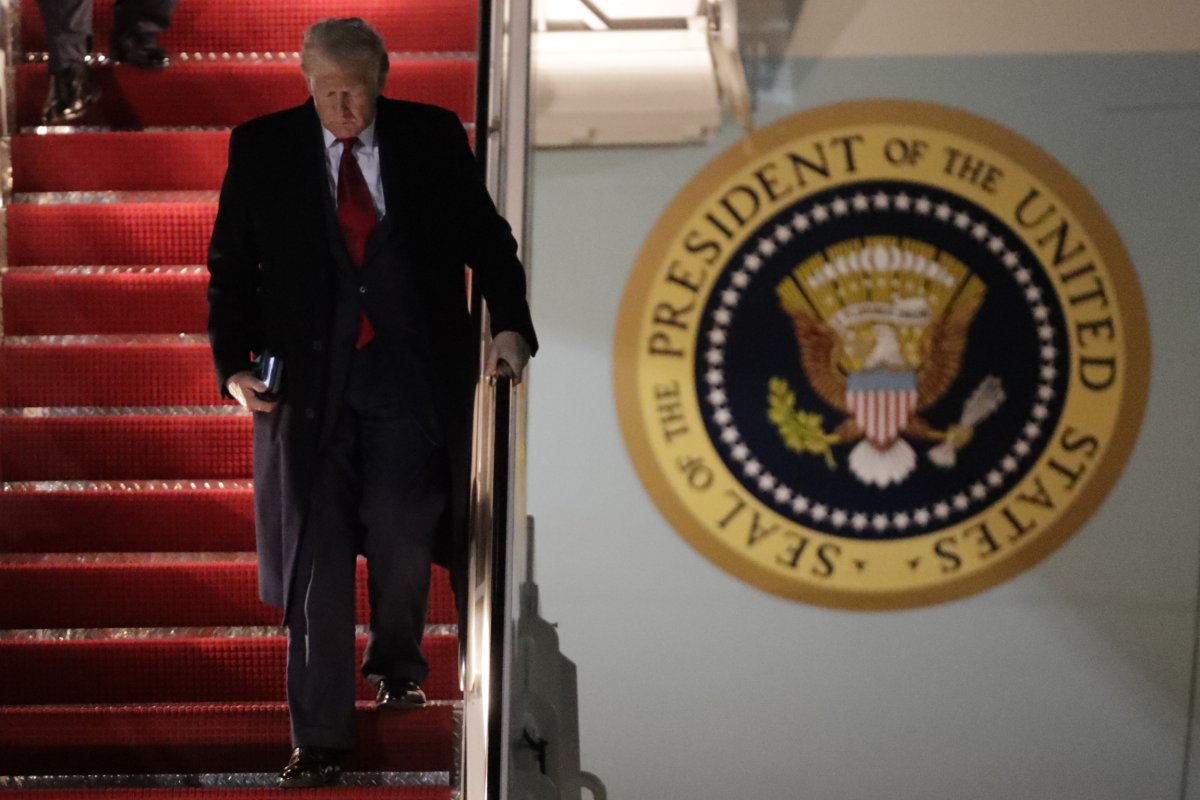

President Donald Trump‘s move to exempt electronics from a sweeping U.S. tariff on China marks a “small step” back from an “erroneous practice,” Beijing said on Sunday, urging the administration to scrap its tariff regime altogether.
Trump has defended his tariff strategy as a way to restore U.S. manufacturing and push trading partners to eliminate what he calls unfair barriers to American goods.
The administration’s tumultuous rollout of tariffs—or taxes paid by importers on foreign-made goods—has caused widespread confusion worldwide. The White House has imposed new duties on top U.S. trade partners—including Canada, Mexico and China—only to walk them back or raise them again in response to perceived slights.
After last week’s tariff broadside targeting about 180 countries and territories sent markets tumbling, Trump announced a 90-day reprieve for most of those affected. One notable exception was China: Tariffs on its goods were increased from 125 percent to 145 percent in a tit-for-tat move after Beijing imposed reciprocal tariffs of 84 percent on U.S. exports the same day.


The U.S. announced another surprise trade update in a memorandum of understanding on Friday, exempting smartphones, computers and chips from its 145 percent tariff rate on Chinese goods.
China accounts for much of the world’s electronics manufacturing and plays a critical role in global supply chains.
Commenting on the move, China’s Commerce Ministry suggested the U.S. had blinked and reiterated its opposition to the trade war.
“It should be said that this is a small step taken by the U.S. side to correct the erroneous practice of unilateral ‘reciprocal tariffs,'” a spokesperson said.
The trade duties “have not only failed to solve any of the problems of the United States itself, but have seriously undermined the international economic and trade order, seriously interfered with the normal production and operation of enterprises and people’s daily consumption, and harmed others and themselves,” the spokesperson added.
The official called on Washington to take a more meaningful step toward “correcting mistakes” by dismantling its tariff program entirely.
Trump administration officials, including top trade adviser Peter Navarro, have pushed back on describing the electronics carve-out as an exemption.
Taking to social media, Trump called China a “hostile trading nation” and said its electronics were still subject to the lower 20 percent tariff rate imposed in March over the continued export to North America of chemical precursors used in the production of the opioid fentanyl.
U.S. President Donald Trump wrote on Truth Social on Sunday: “The Fake News knows this, but refuses to report it. We are taking a look at Semiconductors and the whole electronics supply chain in the upcoming National Security Tariff Investigations.
“What has been exposed is that we need to make products in the United States, and that we will not be held hostage by other Countries, especially hostile trading Nations like China, which will do everything within its power to disrespect the American People.”
Ryan Hass, a China scholar at the Brookings Institution think tank, wrote on X, formerly Twitter, on Saturday: “[People’s Republic of China] leaders don’t expect near-term resolution to trade war. They view it as symptom of a broader U.S. strategy to suppress China’s rise. They believe PRC concessions now would only invite further U.S. pressure. They’re treating moment as strategic challenge, not an economic crisis.”
With both sides firmly entrenched, a near-term resolution to the U.S.-China trade war—originally launched by Trump during his first term—appears unlikely.
US President Donald Trump has again rattled global investment markets, this time with his threats…
Leona Maguire is the sole Irish player in the field at this week’s Chevron Championship…
Notable PeopleKanye 'Ye' West just proved he and Bianca Censori are back together with a…
When was the last time you saw a concept van? It's been a minute, but…
National News The Airbus A330 aircraft had 282 customers, 10 flight attendants and two pilots,…
Stocks fell sharply on Monday as Wall Street returned from a shortened trading week and…